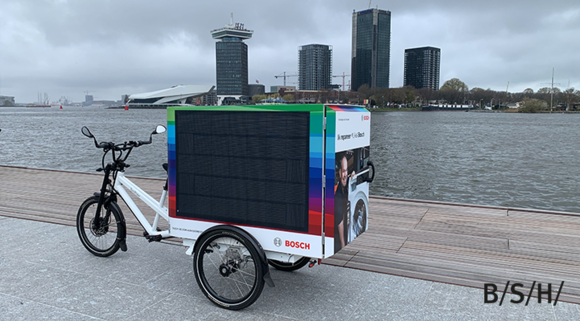The great advantage of the new system is that the lighting adapts to user behavior. Motion sensors ensure that the system automatically dims the light if an area is not used for a longer period of time. To guarantee a certain lighting level, the luminaires are never switched off completely.
“This is the most economical and therefore environmentally friendly option,” explains Gerd Ocker, Logistics Manager at the Giengen site. “At the same time, our employees can make settings very easily by switching to the intelligent and networked system. For example, we can call up operating and consumption data at any time,” says Ocker. He expects that the changeover costs will pay for themselves in less than four years.
The modernization of the Giengen logistics center contributes to BSH’s corporate strategy to constantly reducing resources. In 2010, the project “Resource Efficiency 2015” was launched, in which various measures were implemented by the end of 2015 to become even more efficient and sustainable. These measures primarily aim at decoupling growth and resource consumption – increasing production figures should not mean an automatic increase of specific CO2 emissions at the same time. The German Energy Agency (dena) awarded BSH’s activities with the “Energy Efficiency Award” in 2014.
And a lot of further effort has been made since then. Between 2015 and 2017, BSH saved 25 million kWh in energy consumption in production and thus 40,000 t CO2 emissions. Around 13,000 t of this comes from the use of photovoltaics and 3,300 t from the use of biomass/district heating. Thanks to the savings in specific emissions in production, BSH was able to improve its CO2 footprint by 1.6 percent between 2015 and 2017.
All this is an incentive to make further progress in the area of resource efficiency with the current “Resource Efficiency 2025” program. BSH’s ambitious goal is to reduce energy consumption by a further 20 percent by 2025.




